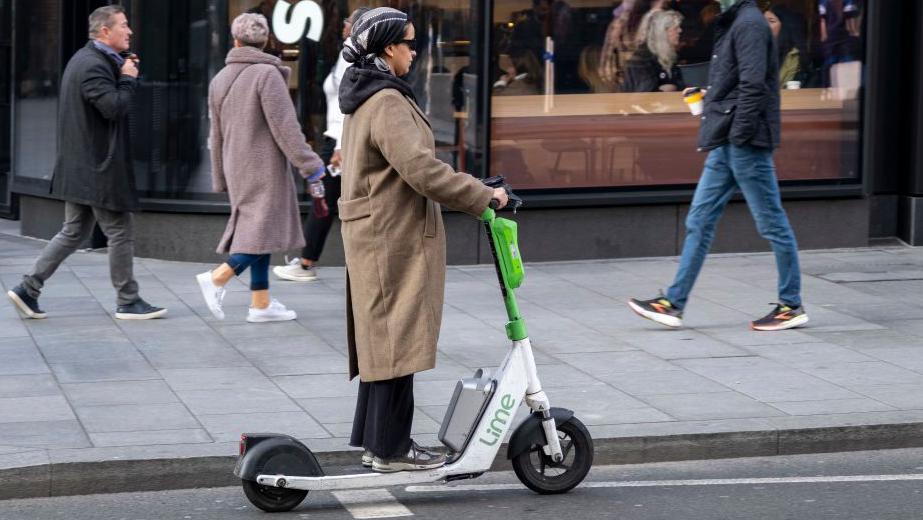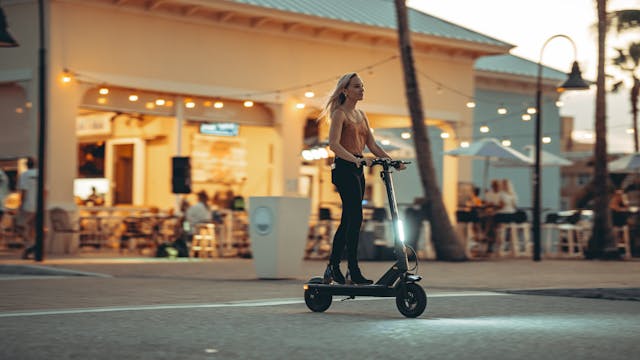
Electric scooters are fast becoming a symbol of modern city life. Sleek, affordable, and tech-forward, they offer a fun alternative to buses, trains, and even cars.
For many young people, they’re more than just a ride—they represent freedom.
But beyond the buzz lies a serious question: what do e-scooters really mean for youth safety, independence, and the future of travel?
A Trial That’s Gaining Speed
Transport for London (TfL) recently expanded its e-scooter rental trial. A third of London boroughs now take part. Wandsworth’s inclusion added 35 km² of coverage and around 170 new parking bays.
Altogether, the trial now covers 300 km², with more than 1,300 scooter bays across the city.
It’s a big win for green mobility. But with the expansion comes a need to address real concerns—especially around safety, access, and education for younger riders.
Why Young People Are Riding In
E-scooters are cool, plain and simple.
They’re eco-friendly, easy to use, and cheaper than public transport or owning a car. For students, part-time workers, and Gen Z creatives, they’re a smart way to move.
Since June 2021, more than 5 million rides have been taken on rental e-scooters in London. TfL reports a 27% rise in returning users and notes that 7% of trips now replace car journeys.
Young people are clearly embracing this shift.
Legal vs Illegal: Know the Difference
Here’s where it gets tricky. There’s a big gap between legal rental scooters and privately-owned ones.
Rental scooters—from companies like Voi and Lime—are speed-limited to 12.5mph, come with GPS tracking, and have built-in lights. They’re legal only in boroughs that are part of the official TfL trial.
Private scooters, on the other hand, can’t legally be used on public roads, pavements, or cycle lanes in the UK. Yet many young riders still use them, attracted by lower costs and fewer restrictions.
This legal grey zone causes confusion—and sometimes, trouble.
The Real Risk: Accidents and Awareness Gaps
TfL highlights that only 0.0004% of rental rides have led to serious injury. That’s encouraging. Even better—there have been no reported deaths since the trial began.
But outside trial zones, things look different. Accidents involving private e-scooters are on the rise. Many involve young riders, faulty scooters, or unsafe road conditions.
Helmet use is low. Riding on pavements is common. Weaving through traffic? Also a problem.
These behaviours often come from a lack of guidance—not from recklessness. Still, they put lives at risk.
What’s at Stake for Young People?
Used safely and legally, e-scooters offer more than convenience. For young people, they represent freedom, flexibility, and affordability in a city where traditional transport often feels limiting.
But without access to legal options—or education on the risks—they end up using scooters illegally. And that exposes them to fines, injury, or worse.
5 Ways to Make E-Scooters Safer for Youth
- Expand the Trial Citywide
Limiting legal use to some boroughs only adds confusion. Make it easier to ride legally across all of London. - Offer Youth Discounts
Provide free or discounted rides for students, apprentices, or jobseekers. Let legal use be the most accessible option. - Boost Education Campaigns
Schools, colleges, and online spaces should share clearer info on e-scooter laws and safety. - Run Safe Riding Workshops
Community centres and youth hubs could offer hands-on training and road safety lessons. - Improve Infrastructure
More parking bays, clearer signs, and dedicated scooter lanes would help reduce crashes and frustration.
Conclusion: A Fast Ride, but Take It Smart
E-scooters are here to stay. For today’s generation, they’re more than a trend—they’re a pathway to independence.
But with great freedom comes real responsibility.
We can’t expect young riders to make smart choices without smart systems in place. That means clearer rules, better education, more access to legal options, and safer roads to ride on.
Let’s meet young people where they are—on the streets, online, and in real conversations about mobility and safety. Because with the right support, e-scooters can be more than just a ride.
They can be a revolution.
https://www.bbc.co.uk/news/articles/cy4k3yyzvyeo
https://insidesuccessmagazine.com/category/politics
Zita Salum, a British, Tanzanian journalist with a London heart, is making waves in the world of media. Born and Raised in Hackney London, she discovered her passion for storytelling at a young age. Her journey began as an admin for the Inside Success magazine, but her talent quickly shone through. Zita's ability to craft compelling narratives and her knack for capturing the essence of a story led her to become an editor for the magazine.
From there, her career soared. Zita has contributed to a diverse range of publications, including the prestigious W magazine, showcasing her versatility as a writer. Her expertise spans across industries such as music, corporate, political, sports, arts, and fashion. Beyond her written work, Zita has also excelled in broadcast journalism. Her natural ability to connect with interviewees and her engaging hosting style have made her a sought-after talent in the industry.
In her free time, Zita is a dedicated networker, attending industry events and immersing herself in the latest trends. She is also passionate about investigative journalism and has produced creative documentaries that shed light on important issues. With her talent, drive, and unwavering commitment to her craft, Zita Salum is undoubtedly a rising star in the world of journalism.




Leave a Reply
You must be logged in to post a comment.